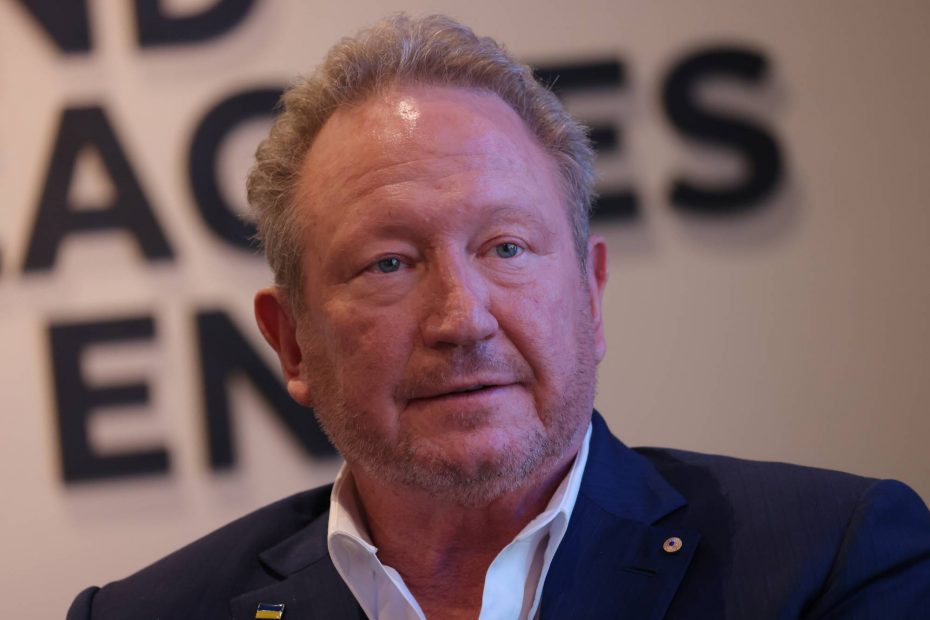Rugby tragics Leigh Clifford and Andrew Forrest were once the fiercest of rival captains. Not on the playing field, but in their respective leadership roles with Pilbara iron ore competitors Rio Tinto and Fortescue back in the 2000s.
Now, almost two decades on, the question is being asked: is Clifford using Twiggy’s Western Force copybook in a bid to save the Melbourne Rebels?
Clifford and Forrest have similar starting points. Just as the Australian Rugby Union held the Western Force’s Super Rugby licence back in 2017 due to the club’s financial struggles, Rugby Australia has the Rebels licence in safe keeping at Moore Park.
Possession, as the saying goes, is nine-tenths of the law. And just as having the Force licence enabled the ARU to axe the Perth team in 2017, RA is now in a position of strength to cull the Rebels.
The question now is whether Clifford and his Melbourne establishment mates can match Forrest’s exploits with the Force in keeping the Rebels alive. And in Donald Rumsfeld parlance, that’s where all the known unknowns come into play.
Andrew Forrest (Photo by Sean Gallup/Getty Images)
On Wednesday, a Melbourne public relations firm circulated a two and a half page media release headed “Plan For New Melbourne Rebels Home In City’s West.” The media release referred to an “innovative masterplan” for the Rebels which director Georgina Widdup described as being “sustainable and embraces our future, not our past,” starting with a proposed deal for the Rebels to move to new digs at the 5,000-seat Wyndham Regional Football Facility in Tarneit.
The media release went on to state that Clifford was “well on the way to raising $20-$30 million from private equity to invest in the Rebels over a number of years.”
There are, of course, a couple of other stakeholders not quoted in the media release who will decide whether that “innovative masterplan” ever gets off the ground.
The first is the Rebels’ licence holder, RA. Problem there is that relations between RA and the Rebels board haven’t been all that cordial since the Rebels board threatened to unleash a torrent of litigation against the code’s governing body for not stumping up the $8 million or so the Rebels claim to be owed.
The animosity between the Rebels and RA was thick in the air during a two-day summit held during the six-match Super Round in Melbourne last month, which Rugby Victoria President Neil Hay was barred from attending.
Rugby Australia CEO Phil Waugh. (Photo by Daniel Pockett/Getty Images)
Clifford got a first-hand taste of that enmity soon after when a meeting with RA to discuss the legal dispute finished with RA abruptly leaving the negotiating table, refusing to pay a cent.
All of which begs the question whether the “sustainable” business model Widdup suggested was at the heart of the so-called “innovative masterplan” is premised on the Rebels doing a Houdini act to be admitted back into Super Rugby.
Or, alternatively, whether it is based on Clifford and his Melbourne establishment mates plotting their own Twiggy-like Global Rapid Rugby competition to be played out of Tarneit.
Either way, given private equity backers generally require a return on their investment, “sustainable” infers that the Rebels will somehow be able to do what has eluded them thus far. That is, to wash their face financially.
As things stand, the financial model for Super Rugby in Australia is broken. That is partly the reason the Rebels are in such a financial funk, and why a cloud still hangs over the Brumbies.
So if Clifford and his private equity backers have indeed stumbled across the colonel’s secret recipe to make a quid out of running a Super Rugby team in Tarneit, they should perhaps patent it now before word leaks out.
The potential wildcard in that equation is whether Clifford can use any influence he has with the Victorian Government to secure taxpayer-funding or favours for the Rebels 2.0 to make ends meet.
Apart from RA, the other big stakeholder with more than a passing interest in the “innovative masterplan” is of course the Rebels administrator. Like Cuba Gooding Jnr in the movie Jerry Maguire, the administrator will be hollering “Show Me The Money” before anyone contemplates a move to Tarneit.
Not for an NFL contract, but funds for the Deed of Company Arrangement (DOCA) for the creditors owed $22 million which the Rebels need to placate pretty quickly to avoid plunging into liquidation.
Those calls will be echoed by the Rebels players and coaching/management staff, who have done a remarkable job of staying focused on playing Super Rugby amid all the corporate uncertainty swirling around them.
As straight-talking Rebels general manager Nick Stiles told The Roar Rugby Podcast this week, those players, as things stand, aren’t able to look any further than their next three pay cheques, with no guarantee of any stipend thereafter.
A cynic might suggest that by attempting to sell the dream of greener pastures at Tarneit, the Rebels board and Clifford are effectively dog whistling “Please Don’t Go” (apologies to KC and the Sunshine Band) to the Rebels players as they scramble to negotiate new playing contracts inter-state or overseas.
Those players and their agents should be demanding to know right now whether any of the $30 million in private equity Clifford reckons he has on the hook from the Melbourne establishment will find its way onto their dinner tables any time soon – or whether they are being asked to hang around in Bleak City in the hope something may happen in the future in Tarneit.
So far, since lapsing into administration, the Rebels board has defiantly huffed and puffed and threatened to blow the RA house down with a tsunami of litigation. For the good of all concerned, let’s just hope their “innovative masterplan” is more than a house of straw.
